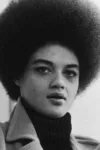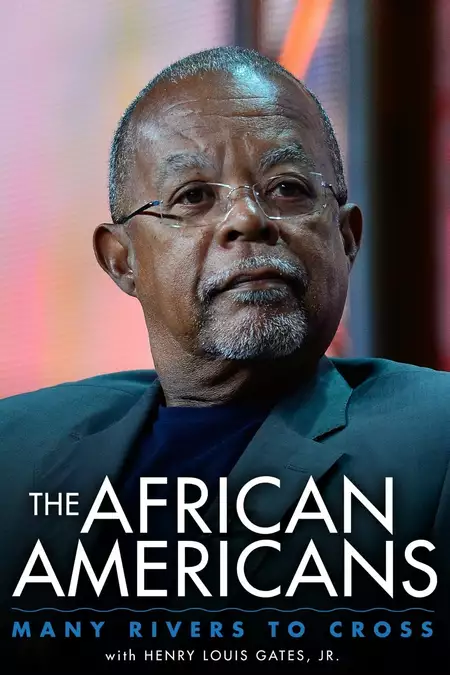The African Americans: Many Rivers to Cross with Henry Louis Gates, Jr. (2013)
The African Americans: Many Rivers to Cross with Henry Louis Gates, Jr. (2013)

Plot.
Where to Watch.
Cast & Crew.

Henry Louis Gates, Jr.
Self / Creator

Hazel Gurland-Pooler
Co-Producer

Peniel E. Joseph
Self - historian

David Levering Lewis
Self - historian

Vernon E. Jordan Jr.
Self - lawyer and civil rights activist

Kathleen Cleaver
Self - professor of law and former member of Black Panther Party
Details.
Release DateOctober 22, 2013
StatusEnded
Seasons1
Episodes6
Content RatingTV-PG
Genres
Last updated:
This TV Show Is About.
Wiki.
The African Americans: Many Rivers to Cross is a six-part documentary miniseries written and presented by Henry Louis Gates Jr. It aired for the first time on the Public Broadcasting Service (PBS) in the fall of 2013, beginning with episode 1, "The Black Atlantic (1500–1800)", on October 22, 8–9 p.m. ET on PBS, and every consecutive Tuesday through to episode 6, "A More Perfect Union (1968–2013)", on November 26. The companion book to the series, The African Americans: Many Rivers to Cross (SmileyBooks, 2013), was co-authored by Gates and historian Donald Yacovone. The two-DVD set of the series was released in January 2014.
The African Americans: Many Rivers to Cross chronicles the full sweep of the African-American experience, from the origins of the transatlantic slave trade to the reelection and second inauguration of President Barack Obama. It is the first documentary series to recount this history in its entirety since the nine-part History of the Negro People aired on National Educational Television in 1965, and the one-hour documentary Black History: Lost, Stolen, or Strayed, narrated by Bill Cosby and broadcast in 1968. According to the PBS website for the series, The African Americans: Many Rivers to Cross "explores the evolution of the African-American people, as well as the multiplicity of cultural institutions, political strategies, and religious and social perspectives they developed — forging their own history, culture and society against unimaginable odds. Commencing with the origins of slavery in Africa, the series moves through five centuries of remarkable historic events right up to the present — when America is led by a black president, yet remains a nation deeply divided by race."
For the series, Gates collaborated with more than 30 historians to identify and select 70 of the most important and illustrative stories of the African-American experience to serve as the epic's narrative spine. Among the more notable figures Gates highlighted was the black Spanish conquistador Juan Garrido, who, in 1513, accompanied Ponce de León on his expedition into what is now the state of Florida. As a result, the airing of The African Americans: Many Rivers to Cross coincided with the 500th anniversary of the presence of persons of African descent in what is today the continental United States. Among the other prominent figures profiled in the series are: Harriet Tubman, Richard Allen, Frederick Douglass, Robert Smalls, Ida B. Wells, W. E. B. Du Bois, Booker T. Washington, Marcus Garvey, Oscar Micheaux, Rosa Parks, Martin Luther King Jr., Ruby Bridges, Charlayne Hunter-Gault, Kathleen Neal Cleaver, Maulana Karenga, Colin Powell, and many more.
In an interview with TheRoot.com (an online magazine that Gates co-founded and for which he serves as editor-in-chief), Gates described his goals for the series:
"First, to show that black culture is inextricably intertwined with American culture. There’s no America without African Americans.
"Second, to provide a tool that teachers can use to enact the conversation about race every day in the classroom. Every day’s gotta be Black History Month. Just like with citizenship, for example: A teacher doesn’t say, ‘Today I'm going to teach you how to be a citizen.’ It's taught every day.”
In a separate interview on the Tavis Smiley Show on PBS, Gates explained how personal the series is for him:
"The reason that I wanted to do this series, the first comprehensive treatment of the whole sweep of African-American history since Bill Cosby did his in 1968, and which I watched with my parents when I was 17 years old, was to provide the tools through which a teacher could incorporate African American history into the story, the grand narrative, of the founding of America, its settlement, its peopling, and its great prosperity over the last several centuries."
You May Also Like.

The Flash (2014)

The Simpsons (1989)

Game of Thrones (2011)

Black Mirror (2011)

Doctor Who (2005)

House (2004)

Rick and Morty (2013)

Breaking Bad (2008)

Friends (1994)

The Walking Dead (2010)

Better Call Saul (2015)

Euphoria (2019)

Marvel's Daredevil (2015)

Arrow (2012)

Mr. Robot (2015)

Person of Interest (2011)

The Witcher (2019)

Chernobyl (2019)

The Shield (2002)


